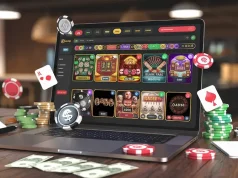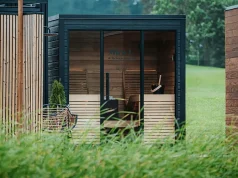
If you’re like most people, you want to give your children the best education possible. If so, you should consider traveling with them. Yes, really. Traveling is one of the best educational experiences a person can have. It allows you to experience a foreign country and get a better understanding of other cultures, historic landmarks, and other sites in a way that cannot be matched in a classroom.
This blog post will explore the rise of world schooling and traveling families. We will discuss why children must learn about other cultures and how e-learning and homeschooling are changing traditional education methods. Finally, we will discuss the incredible personal and professional growth from world travel.
The role of homeschooling

According to a recent study, over 22 million children are currently homeschooled worldwide (audience insights from The Guardian). This number has been steadily increasing for the past decade as parents look for alternative education methods for their children. While schools like Montessori have been around for decades, technology is now the catalyst for alternative forms of education.
E-Learning is increasingly becoming a popular education method as it offers more flexibility and is often less expensive than traditional educational methods. According to eLearning Industry, “eLearning reduces educational expenses by 50% compared to traditional educational methods.” While eLearning has typically been associated with the university, college, and mature-age students, its technologies have been widely adopted by schools during stay-at-home orders over the past few years.
E-Learning and homeschooling are nothing new; the trend has increased for years. But it certainly feels like the global pandemic has accelerated everything digital. With more adults working remotely from home, children can be schooled through eLearning technologies. Will the trend continue as the world returns to a sense of normality or the new reality?
Educational travel adventures

The idea of world-schooling is not new, but it has gained popularity recently as educational travel becomes more accessible. World-schooling is “a form of alternative education where children are taught primarily through experience and travel” (Wanderlust Kids).
This type of schooling allows children to learn about different cultures, religions, and histories firsthand by experiencing the actual locations, museums, and tours instead of teachers inside a classroom. What better way to learn about the effects of climate change than seeing firsthand the Patagonian glaciers collapsing?
The exchange student in a foreign country

In the past, world schooling usually only took place in the form of exchange student inbound program opportunities. A student from South America might swap places with distant people in an American high school or other countries for a year or so. By doing so, they would get to immerse themselves in another culture, as well as experience international travel and adventure.
But as Bob Dylan once sang, The times they are a-changing.
Rise of world-schooling

With the advancement of eLearning, homeschooling, and remote working technologies, families are no longer bound by geographical locations. They can choose to live, work, and travel anywhere. While it’s not for everyone, families that can manage the travel lifestyle while world-schooling their children gain potentially life-changing worldly experiences.
There are many benefits for children blessed with participating in world schooling, but it also has its downsides. The main reason is that kids also need peers to develop their social skills and team-building exercises such as team sports. However, there is one unique segment that is addressing this gap in world schooling.
As education continues to move beyond traditional classrooms, platforms like PiAcademy play an important role in supporting flexible, modern learning. PiAcademy provides structured exam preparation, high-quality practice resources, and personalised academic support that help students stay on track academically, even while exploring alternative learning paths such as world schooling or travel-based education.
Families getting on board the residential cruise

Educational travel adventures are on the rise as families choose to live, work, and learn from residential cruise ships that travel worldwide. A residential ship is like a cruise liner, except instead of having cabins for vacationing in, they have condos to purchase, live in, and take the next trip around the world. Sign us up!
While this model of travel lifestyle has typically been reserved for the extremely wealthy, many new, more accessible players are coming to market. One such outfit is Storylines and its ship, MV Narrative, which has world schooling education as part of its lifestyle.
Storylines is capitalizing on the aforementioned remote working and eLearning technologies, enabling families to live out their lifelong dreams of seeing the world. With so many parents putting off their desire to travel the world for career, family, and other commitments, they can now have it all!
The main benefit for world-schooling families on board a residential ship is that it alleviates the pain points of education travel discussed previously. As the families will be traveling the world from the comfort of home, they will have neighbors doing the same. And there will most likely be other children on board to make friends, play, and even participate in sports. The personal and professional growth from getting out of your comfort zone, let alone experiencing the world, would be miles ahead of that inside of a classroom.
It certainly is interesting to see where the world is headed regarding education, work, and lifestyle. Could we see a rise in communities living at sea, traveling, and educating children around the world, thus becoming actual global citizens? I guess only time will tell.





